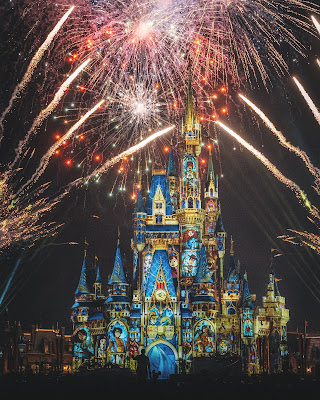As of March last year, the total number of visitors to the two
parks had surpassed 800 million, according to the company. Over time, the theme
parks have produced die-hard fans who make several trips a year to enjoy
seasonal parades and purchase limited-edition goods for big events, such as
Halloween and Christmas. The parks have also come to be known as venues for the
city's Coming of Age celebrations since 2002.
However, the parks' operator experienced financial hardship
during the COVID-19 pandemic. After closing for around four months from the end
of February 2020, the company saw the number of visitors to both theme parks in
fiscal 2020 drop to a record low of 7.56 million, far below the peak of 32.55
million in fiscal 2018. In the business year through March 2021, Oriental Land
fell into the red for the first time since listing on the stock exchange in
1996.
Despite the financial hardships, the imposition of limits on
daily visitors to the parks due to the pandemic has not been entirely negative,
an Oriental Land spokesperson said, noting that it had led to "shorter
waiting times, and guests are spending their time at a more leisurely pace than
before." The company now plans to reduce the number of annual visitors to
the parks from the more than 30 million seen before the arrival of COVID-19 to
about 26 million by fiscal 2024.
As Tokyo Disneyland marks 40 years of enchanting visitors from
around the world, we are left to ponder the future of theme parks in a
post-pandemic world. What measures do you think operators need to take to
ensure responsible tourism, and how can these beloved cultural institutions
continue to thrive while balancing financial success with social
responsibility?



Comments
Post a Comment